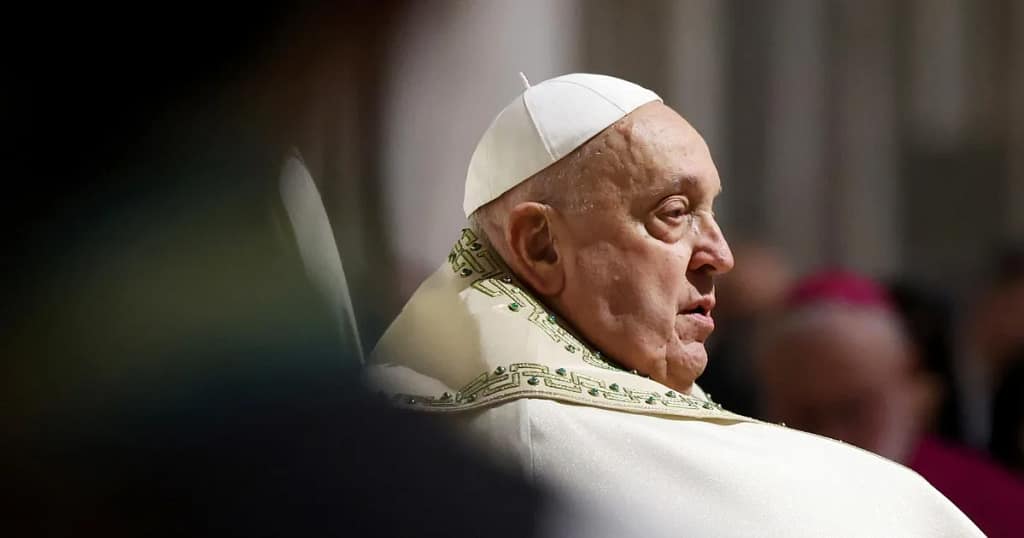A life lived in service to the world — but not in return to his native soil
In a life marked by humility, sacrifice, and global influence, Pope Francis, born Jorge Mario Bergoglio, became a spiritual father to over a billion Catholics and an icon of moral leadership to millions beyond the Church. Yet in a deeply poignant and symbolic reality, the Argentine-born pontiff never returned home after ascending the throne of St. Peter in 2013.
As the world continues to mourn the passing of the beloved Pope on Easter Monday at age 88, this quiet absence — his physical disconnection from the land of his birth — is stirring reflection and sorrow in his homeland and far beyond.
The First Pope from the Americas — and the Lasting Ties to Buenos Aires
Born in Flores, a working-class neighborhood in Buenos Aires, Jorge Mario Bergoglio was a man deeply rooted in Argentine life. He spoke often of his mother’s kitchen, the bustle of the city, and his love for tango and mate. Before being elected pope, he was Archbishop of Buenos Aires, a man of the people — often riding public buses, visiting slums, and choosing a modest lifestyle over clerical privilege.
When he stepped onto the balcony of St. Peter’s Basilica in March 2013 and said simply, “Buona sera,” the world met the first Latin American pope, the first Jesuit pope, and a man whose leadership would reorient the Church toward the margins of society.
But once he became Pope Francis, he never returned to Argentina — not even for a pastoral visit. It was a decision that puzzled, disappointed, and yet ultimately underscored the cross he chose to carry.
Why Didn’t He Return?
While never publicly framed as an intentional decision to stay away, the reasons for Pope Francis’ absence from Argentina were complex, pastoral, and deeply personal. He often said, “I’m close in heart even if not in presence,” when asked about returning. Some reports pointed to his desire not to become the center of political attention in his increasingly polarized home country. Others noted that the Vatican’s focus was on supporting peripheries — regions struggling with war, poverty, and displacement — over making symbolic homecomings.
“Francis believed his mission was global, not national,” said Father Antonio Spadaro, a Jesuit and close papal advisor. “He didn’t want a return to become a distraction from his call to serve the poor and unify the Church.”
Argentina Reacts with Mixed Emotions
The news of Pope Francis’ passing has left many in Argentina heartbroken, with an added layer of grief — he died without ever setting foot again on the soil of his youth.
In Buenos Aires, churches held impromptu masses. Streets that once saw him walk in anonymity now bear silent vigil to his memory. A giant banner outside the Metropolitan Cathedral reads: “Gracias, Padre Jorge. Siempre con nosotros.”
President Javier Milei, in an official statement, said:
“Pope Francis was our son, our pride, and our conscience. While he never came back in body, his soul never left us.”
Ordinary Argentinians expressed sorrow on social media:
“He loved us from afar — but we always felt his embrace.”
— Mariana L., Buenos Aires
“It hurts that he never returned. But maybe that was his way — giving everything to the world and asking nothing for himself.”
— Lucas M., Córdoba
A Global Mission That Kept Him on the Move
In contrast to his absence from Argentina, Pope Francis visited over 50 countries, traveling to places where few popes had ever set foot: war zones, refugee camps, slums, and earthquake-devastated regions. His journeys included South Sudan, Myanmar, Iraq, Central African Republic, and remote parts of Asia and Africa.
He was famously quoted saying, “I want to go where the pain is loudest.”
His legacy is not marked by borders, but by bridges — between the rich and poor, faith and doubt, tradition and progress. He chose the peripheries, and in doing so, perhaps became even more Argentine — in the spirit of his people, if not in geography.
Theology of Absence — A Final Reflection
In many ways, the fact that Pope Francis never returned home has become a theological statement in itself. He lived out the call of Christ to “leave everything and follow me” — not just in word, but in deed. His was not the papacy of nostalgia or sentiment, but of surrender.
*“Home,” he once said during a homily, “is where you are needed most.”
And indeed, the world needed him. The Church needed him. The lost, the broken, the voiceless — they all became his home.
Tributes from Around the World
Patriarch Bartholomew I (Ecumenical Patriarch of Constantinople):
“A brother in Christ, a visionary for peace. Though his body never returned to Argentina, his heart circled the world countless times.”
UNESCO Director-General Audrey Azoulay:
“His commitment to intercultural dialogue, education, and environmental justice will endure across generations.”
President Emmanuel Macron of France:
“He was the conscience of our time — a man who walked lightly but spoke loudly for the voiceless.”
Mother Agnes Mariam (Syrian Christian Leader):
“He visited us in war. That was his homecoming — to every suffering heart.”
Conclusion: The Pope Who Carried the World in His Heart
Pope Francis may never have boarded a plane back to Buenos Aires, never stood again on Argentine soil, never walked the streets of Flores as pontiff — but he never forgot his roots. His every gesture of mercy, his every call for justice, his every embrace of the poor echoed the values born from his Argentine upbringing.
“I never went back,” he once said in private. “But I never left.”
Now, in his passing, Argentina — and the world — embraces him in return.
Requiescat in pace, Papa Francisco. Vuelve a casa, finalmente.
(Rest in peace, Pope Francis. Come home, at last.)

